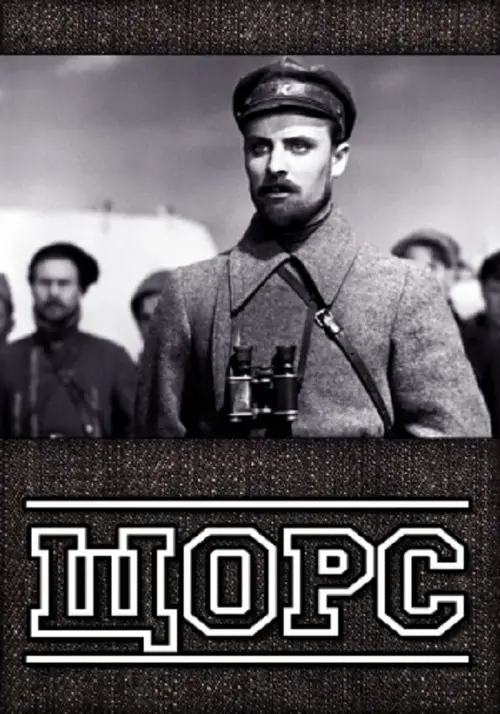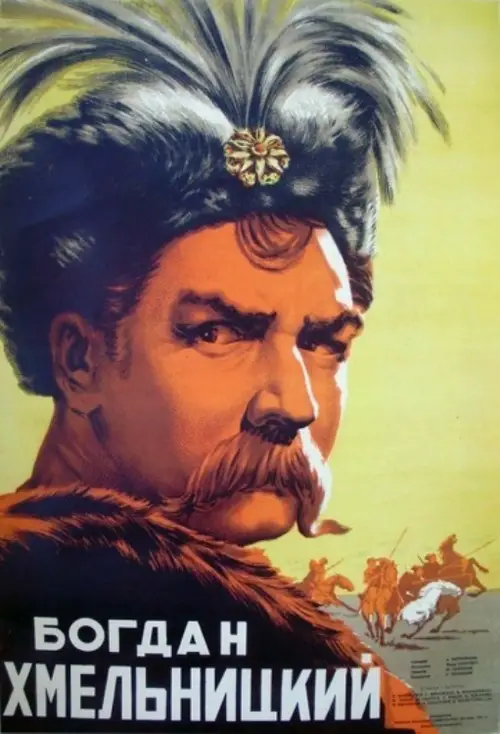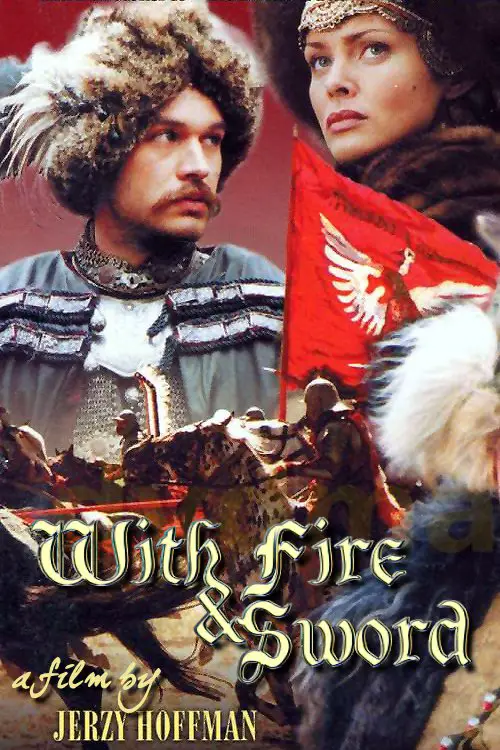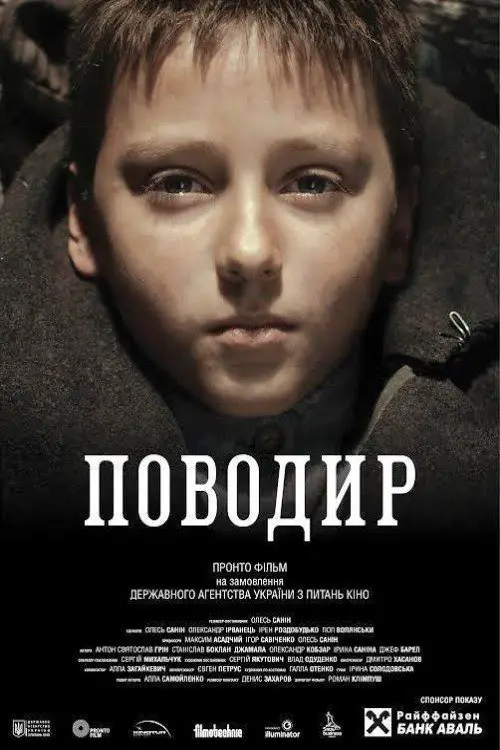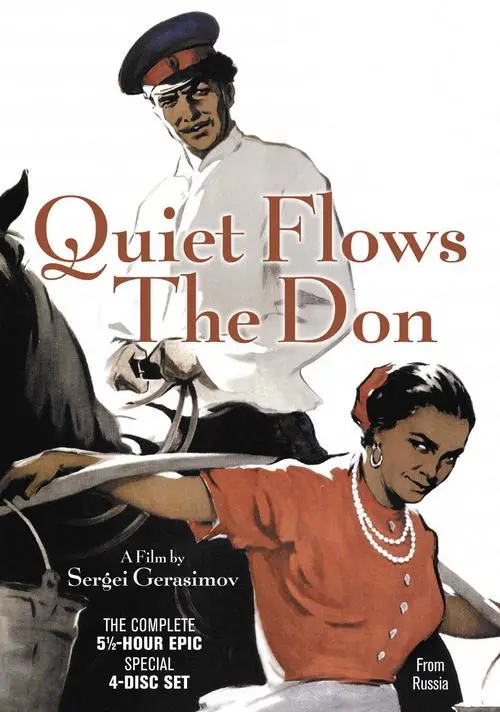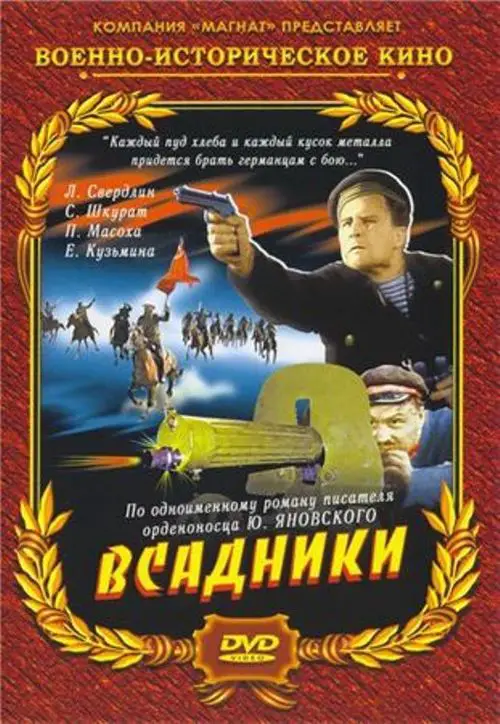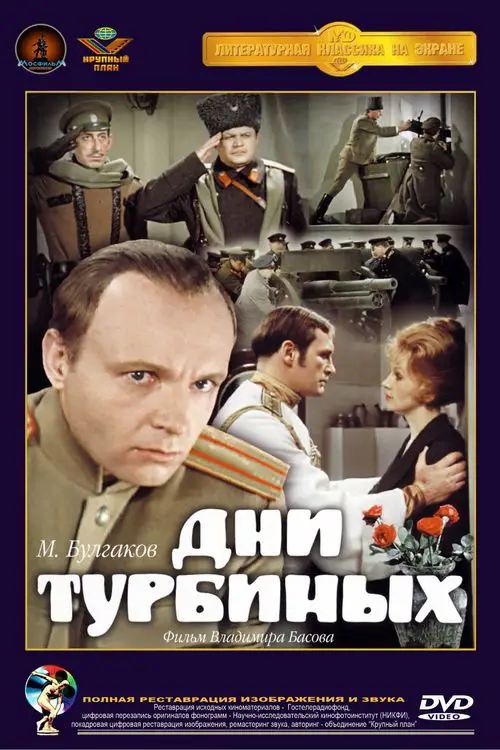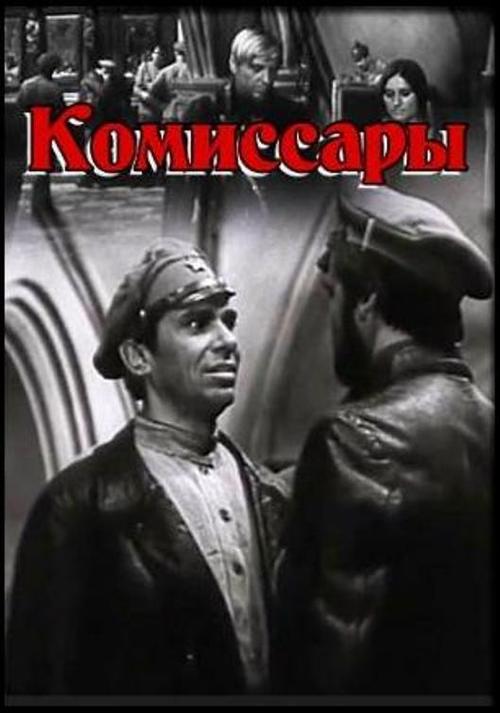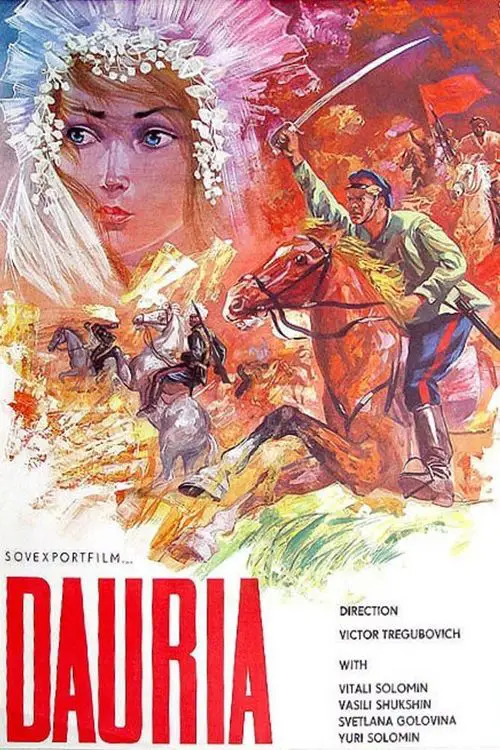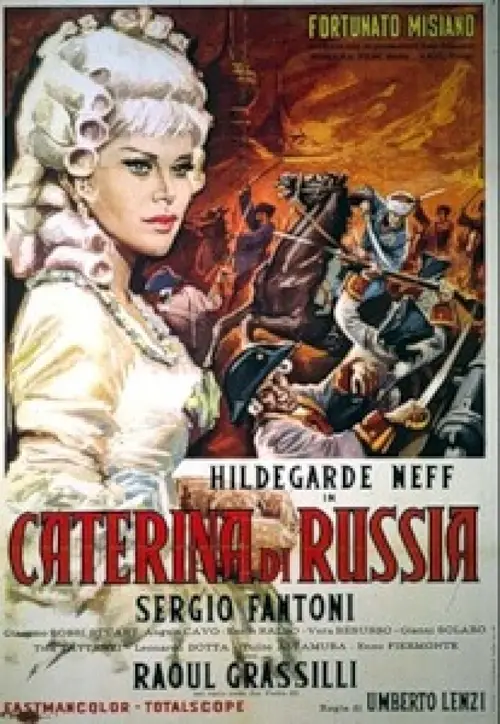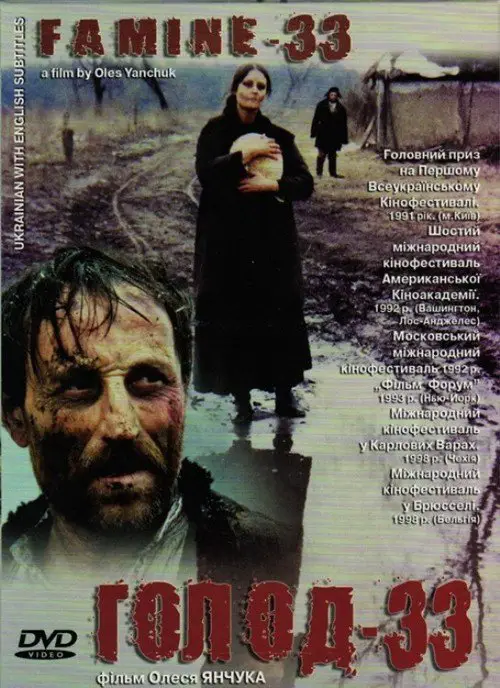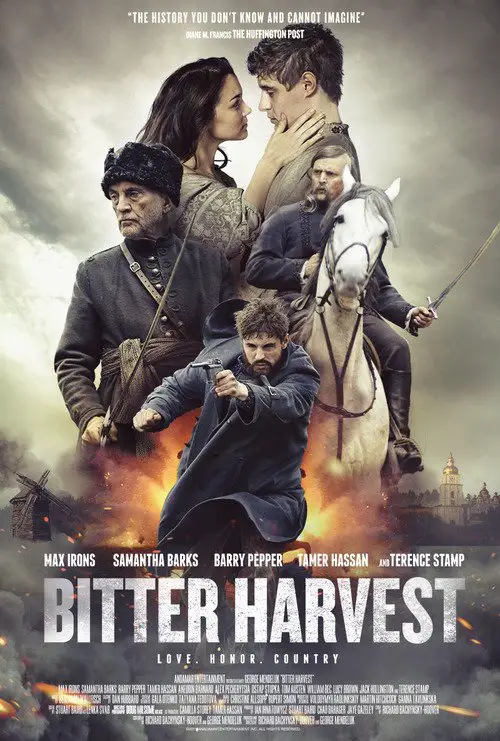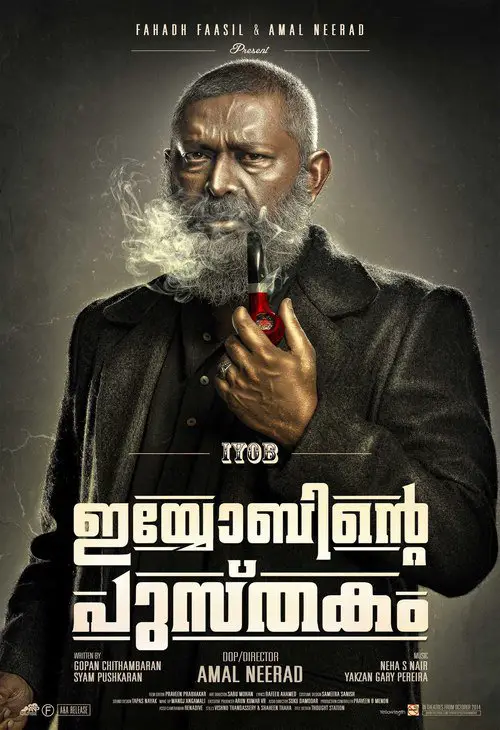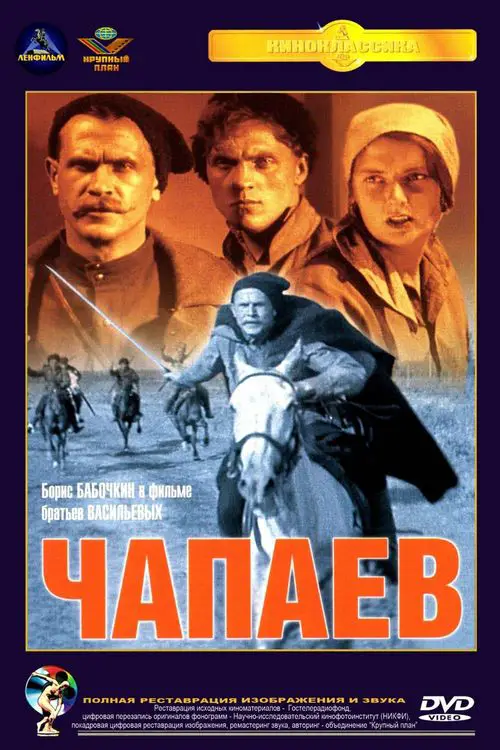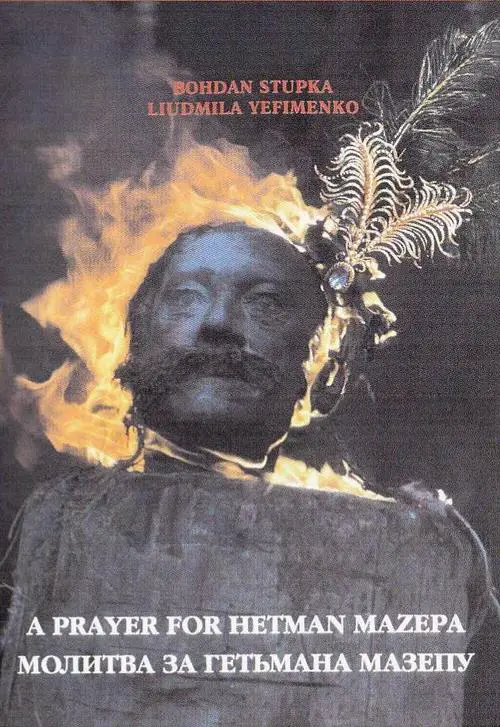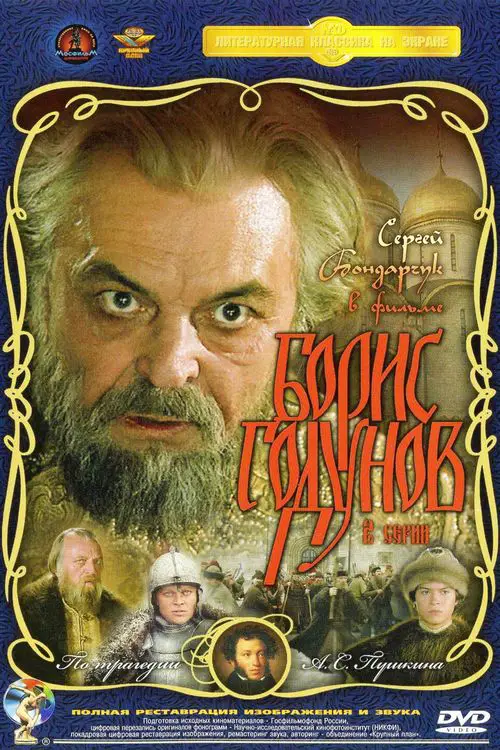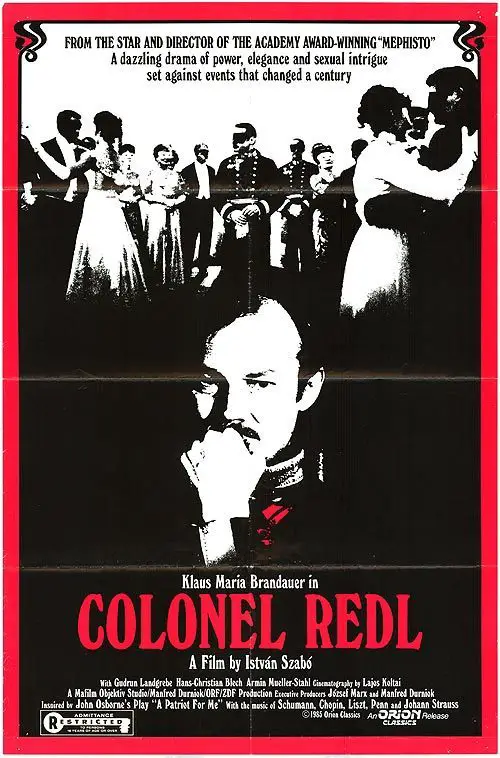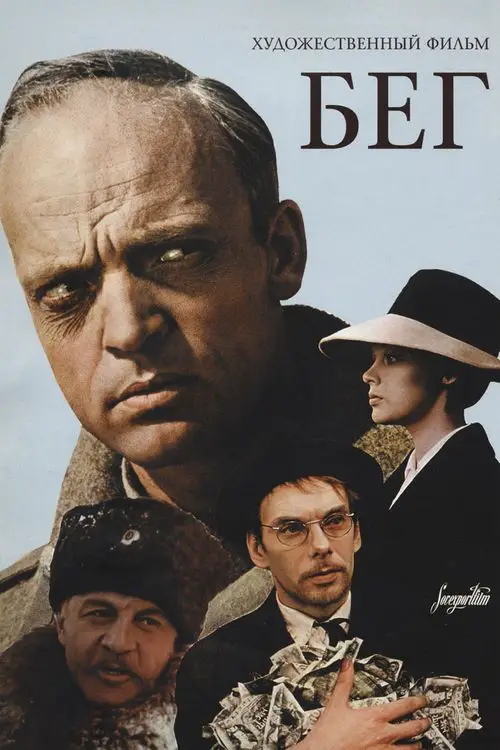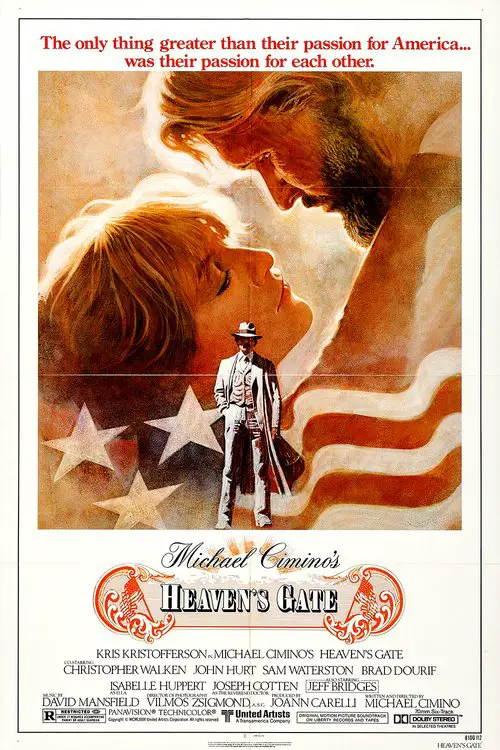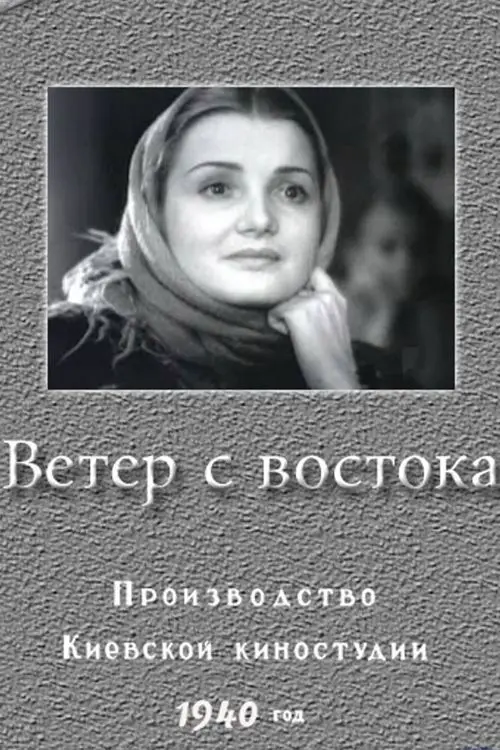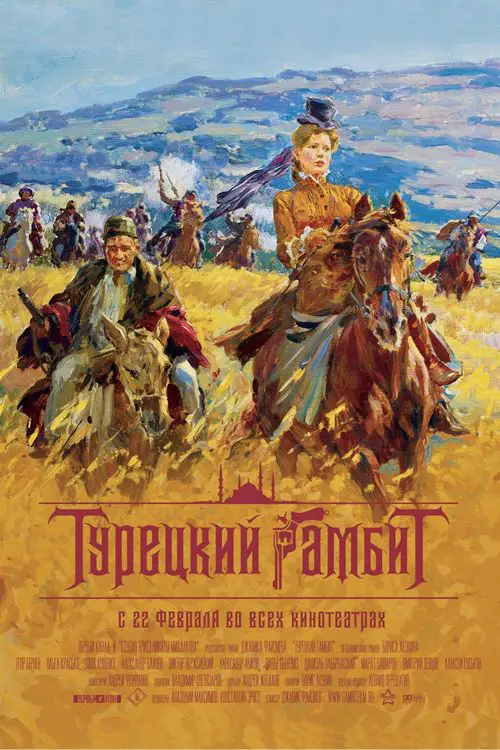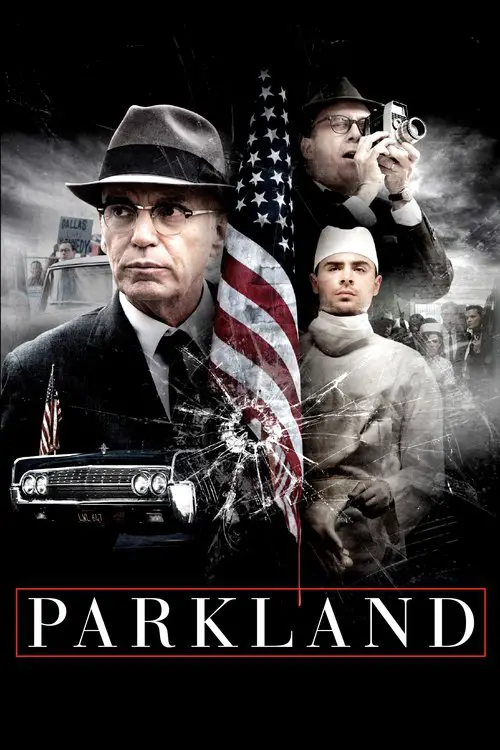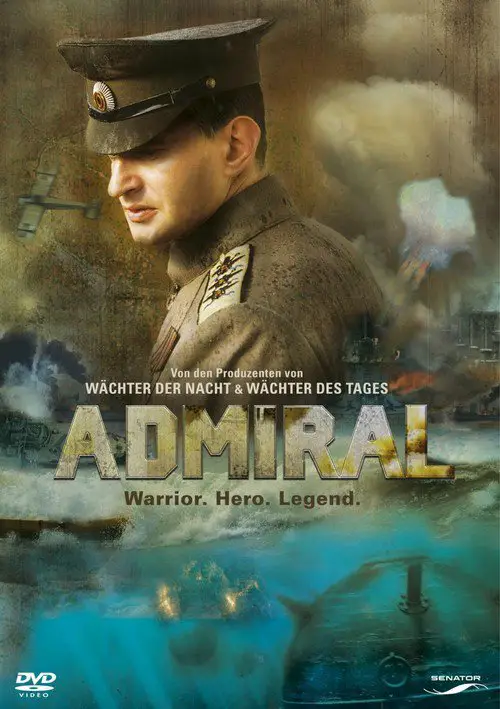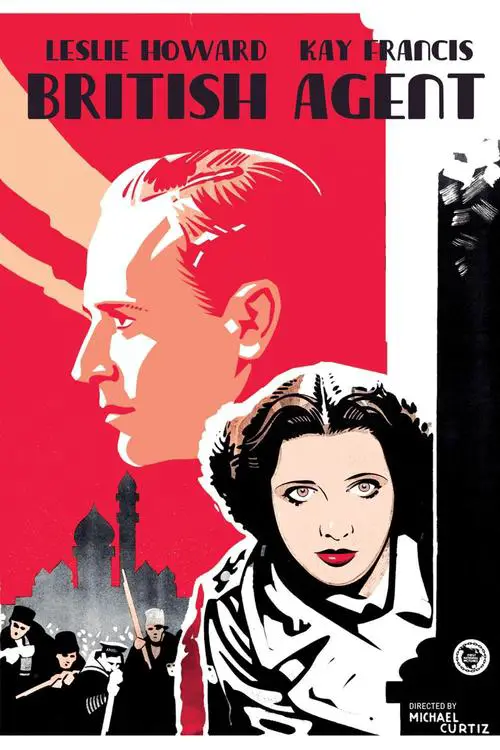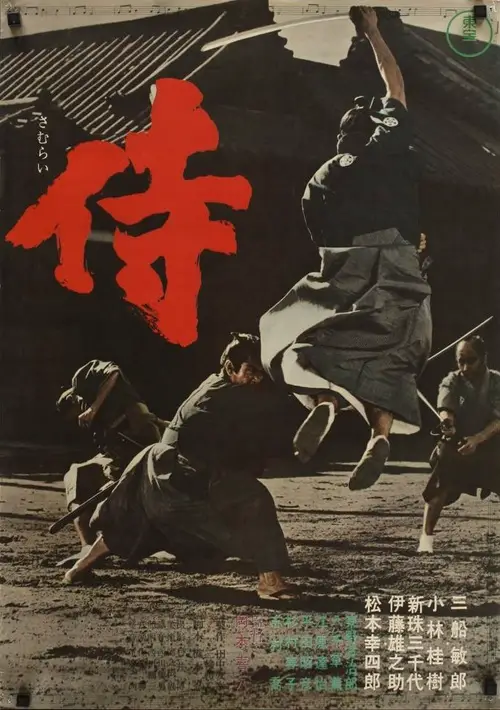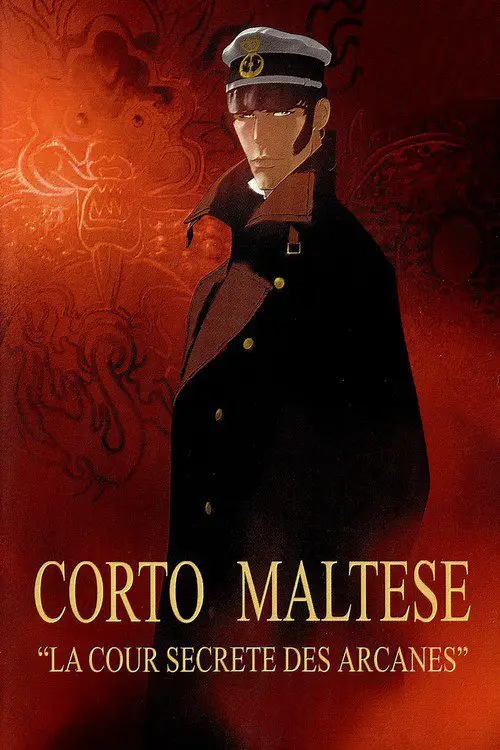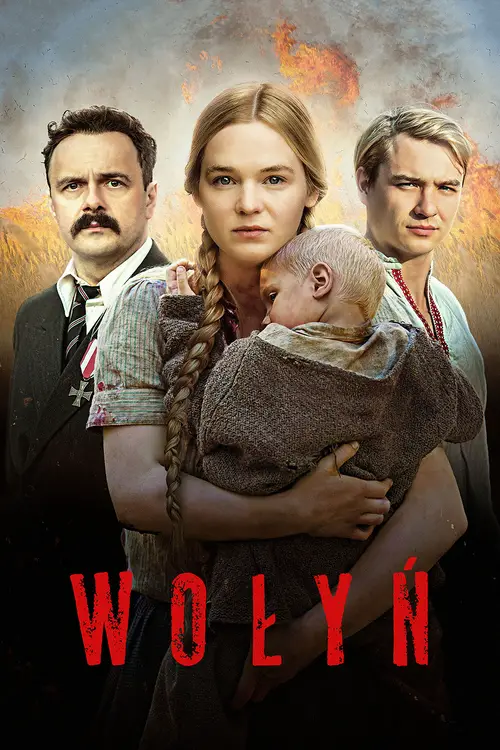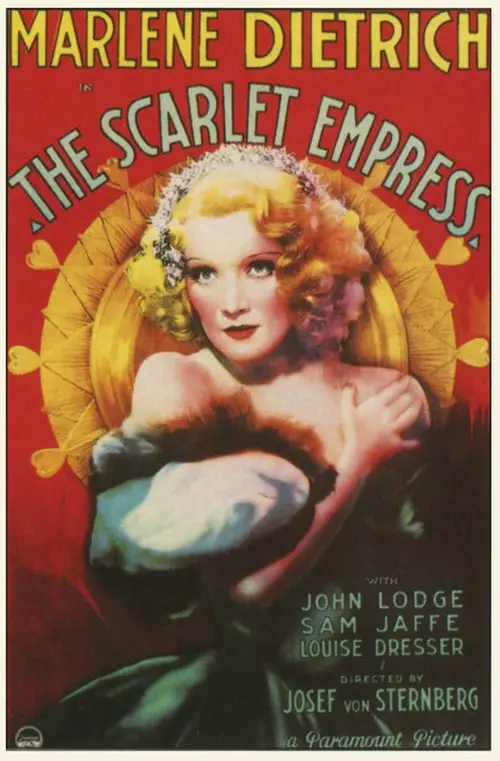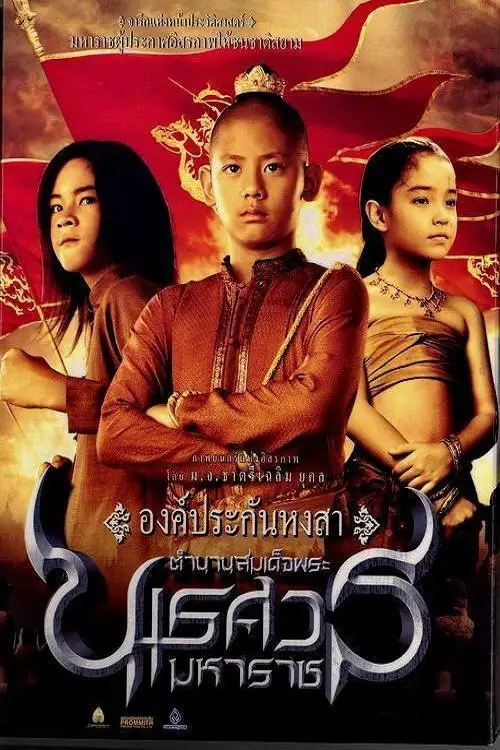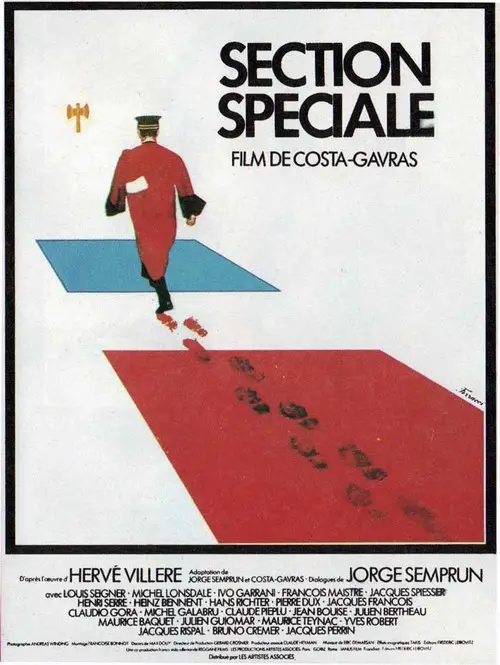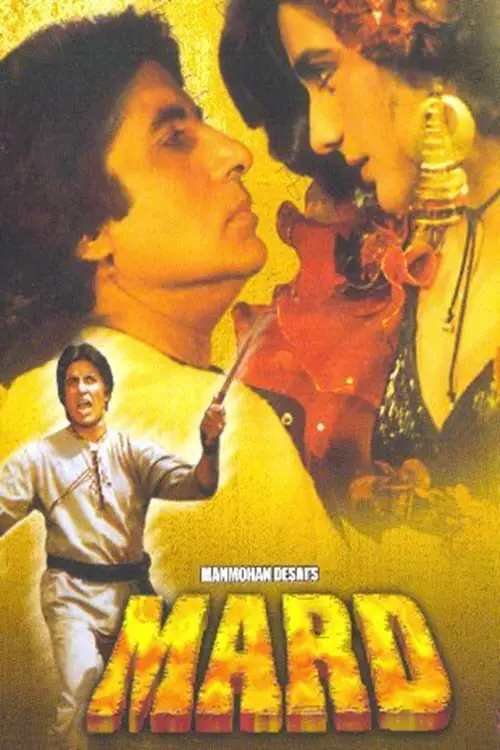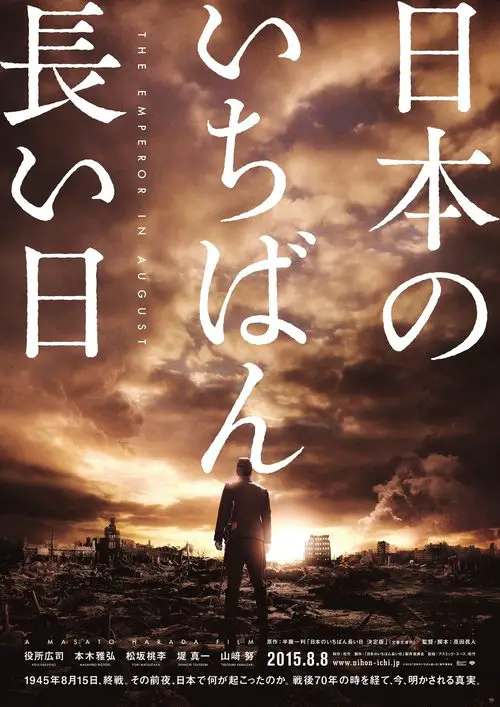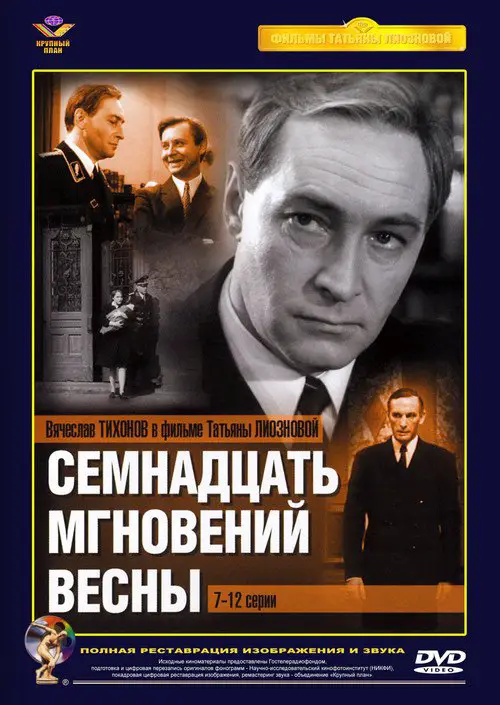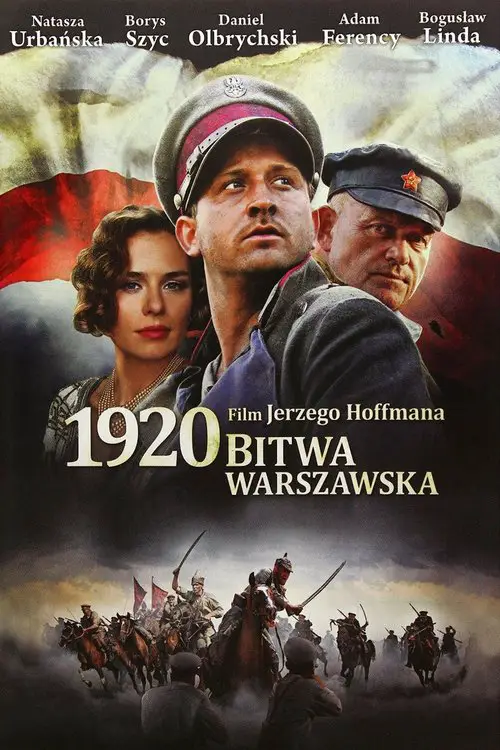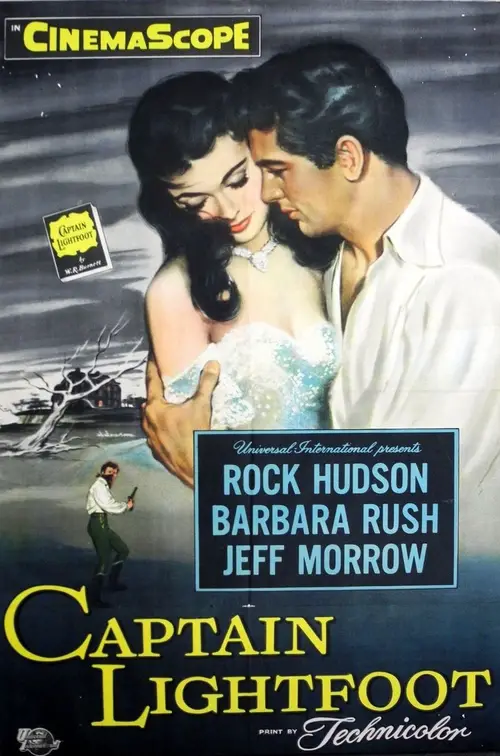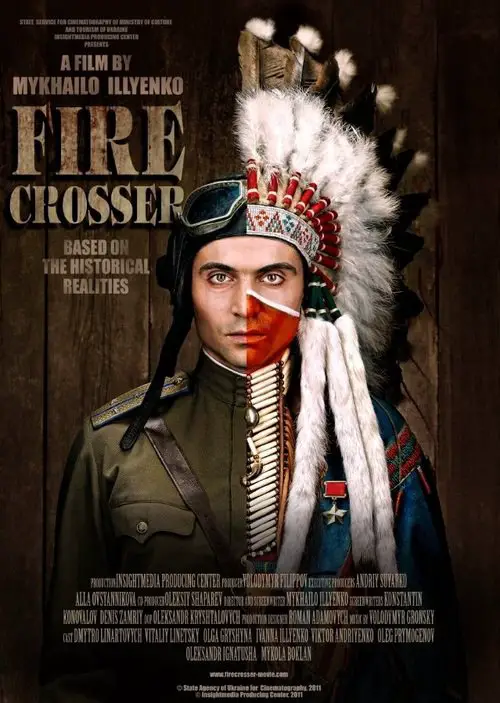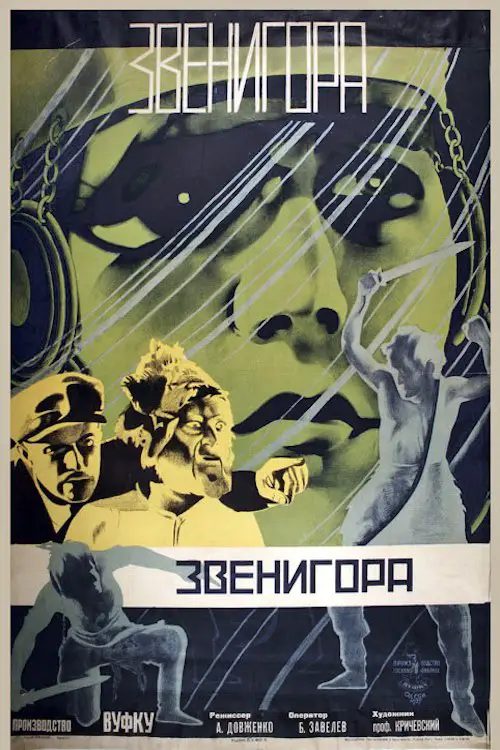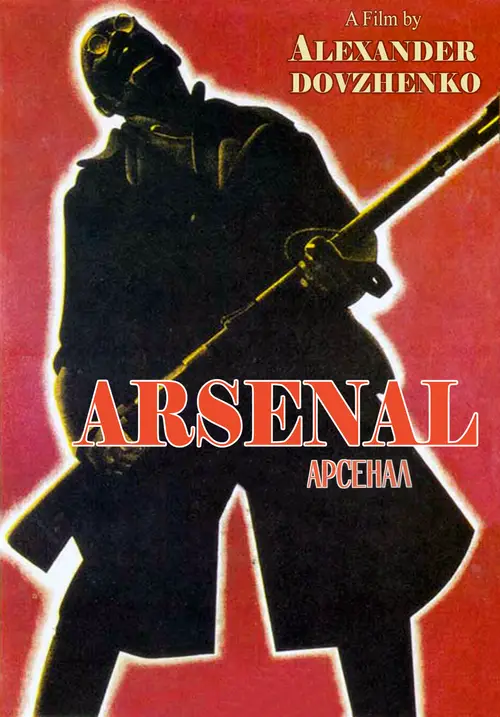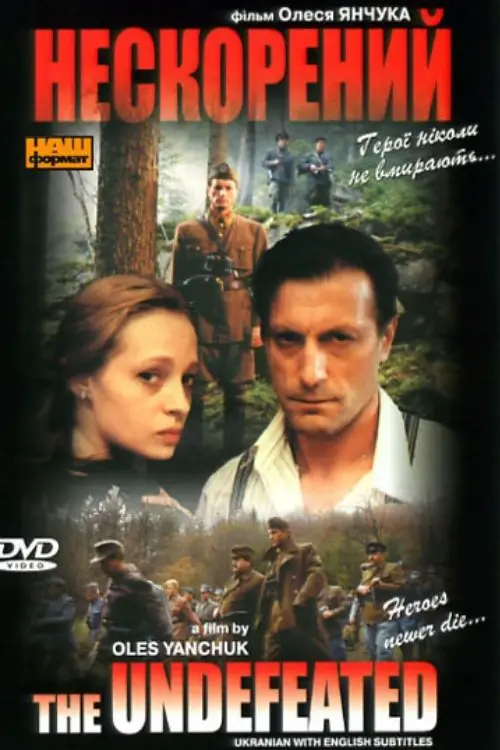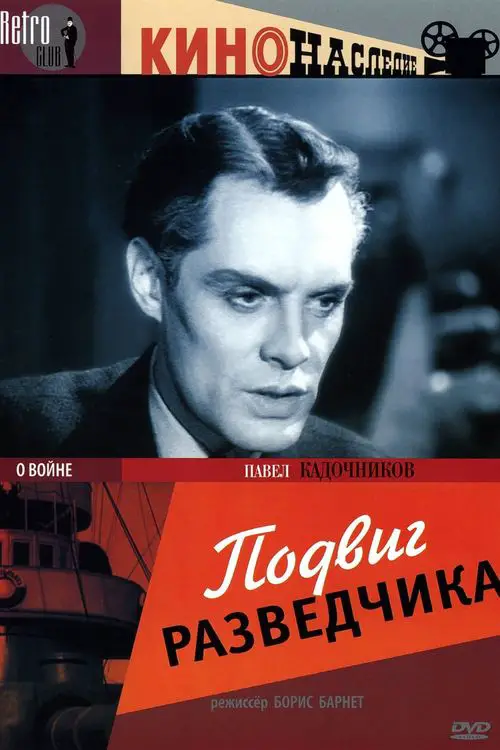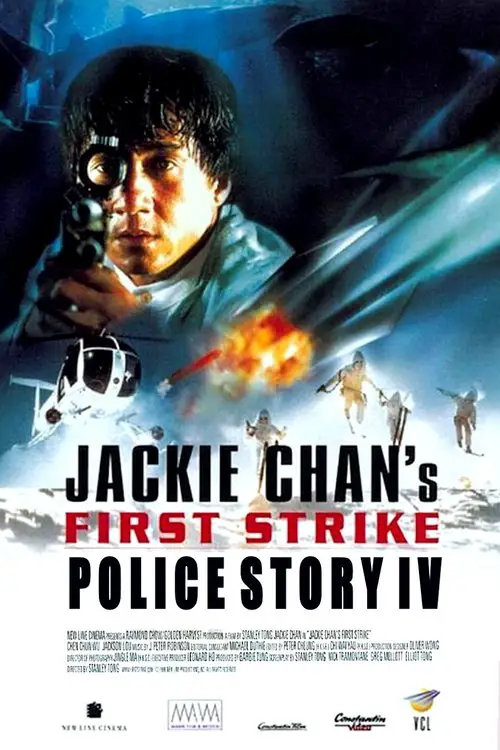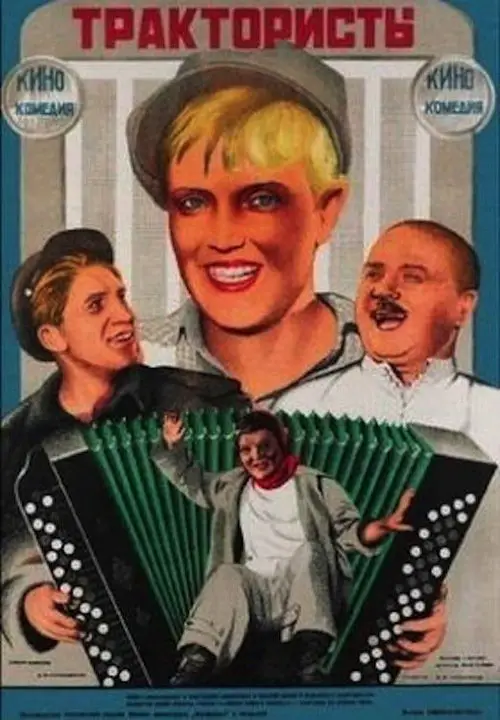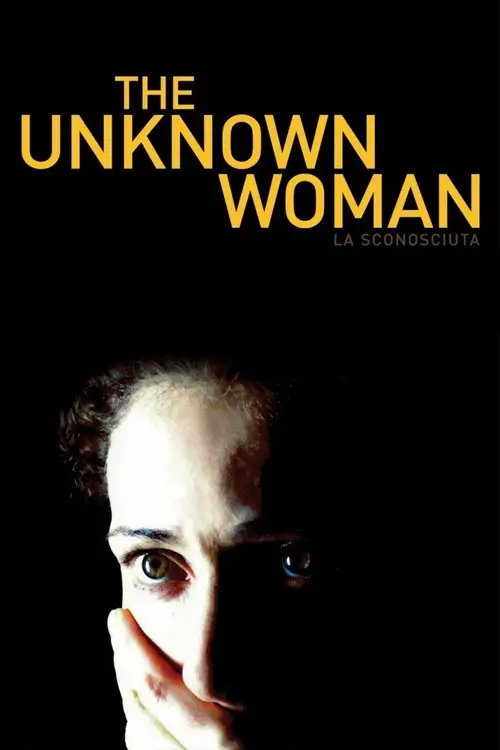Iron & Blood: The Legend of Taras Bulba (2009)

Similar movies
The year is 1919. German troops retreat from Ukraine. The Directory, the Ukrainian national government lead by Symon Petliura, takes control of Kyiv. Meanwhile, the Bolshevik division commanded by Mykola Shchors is marching on the capital. The Bolsheviks capture the cities of Vinnytsia, Zhmerynka, and others one by one, but lose Berdychiv to Petliuraâs forces. They are demoralized by the defeat. By his personal example of courage and military skill, Shchors inspires the retreating Red troops and leads them to victory over the enemy.
A six-hour long epic (original director's cut) about the life of Don Cossacs in a village in southern Russia between 1912 and 1922. The leading character Grigori Melekhov is a rugged Cossac, who is torn between his first and true love Aksiniya, and his wife Natalya. Grigori Melekhov's personal life is shown as a rough journey through the experience of World War One, the Russian Revolution, and the following Civil War. The Cossacs are shown as traditional farmers and warriors, who are suffering through the most dramatic events in the history of Russia.
Episodic story of the resistance to the German invasion of the Ukraine in 1918 during World War 1, and made as an example of the guerrilla warfare and fierce spirit in which Ukrainian peasants were again resisting Teuton onslaughts in 1939. Highlights a small band of guerrillas and their battles using scythes, shotguns and, often, just clubs against the Kaiser's army in the Ukrainian forests.
This ideologically charged film as a typical sample of Soviet version of history portrays the events in Ukraine in 1921 after the defeat of Ukrainian liberation struggle and the occupation of the country by invading Bolshevik hordes. The Bolsheviks are good guys and Ukrainian rebels refusing to submit to a new, this time Soviet, slavery are portrayed as bandits and brigands fighting against their own people.
A chronicle of life in a small village in the Baikal Region on the eve of World War I and at the time of the October Revolution. The age-old foundations are crumbling, the process of social stratification is underway and, as a result, some people go to defend the revolution, and others - to fight against it. The main hero is the young Cossack Roman Ulybin. At first, this carefree daredevil is preoccupied only with one problem: whether his sweetheart, Dashutka, is to marry him or a merchantâs son, Alyoshka. Roman is killing time fist-fighting with his rival. But little by little, the young man realizes that the world around him has changed, that people are fighting for equality and social justice, and, being a real Cossack, he canât remain on the sidelinesâ¦
Ichi is a blind entertainer that travels the countryside with her traditional Japanese guitar and walking stick. Sheâs in search for the kind man that brought her up as a child, but because of her beauty she encounters problems every step of the way. Fortunately for Ichi, she is also a gifted swordswoman and carries a lethal blade within her walking stick.
Set between the two World Wars and based on true historical events, Bitter Harvest conveys the untold story of the Holodomor, the genocidal famine engineered by the tyrant Joseph Stalin. The film displays a powerful tale of love, honour, rebellion and survival at a time when Ukraine was forced to adjust to the horrifying territorial ambitions of the burgeoning Soviet Union.
The Nazis, exasperated at the number of escapes from their prison camps by a relatively small number of Allied prisoners, relocates them to a high-security "escape-proof" camp to sit out the remainder of the war. Undaunted, the prisoners plan one of the most ambitious escape attempts of World War II. Based on a true story.
In the 16th century in Chosun dynasty, HWANG Jung-hak and LEE Mong-hak create the âGrand Allianceâ with the united dream of a better world. While the new leader LEE dreams of eradicating this world of all its corruption and becoming king himself, the legendary blind swordsman HWANG who had once been his comrade goes after him with the loss of his good friend at the hands of LEE. Just as the king abandoned his kingdom from Japanese invasion, the two come face-to-face inside the empty palace and begin their last battle they were destined to fight.
This film is based on the book about Vasili Ivanovich Chapaev (1887 - 1919) who was in real life the Commander of the 25th Division of the Red Army. Chapaev is an uneducated peasant and a decorated hero in the World War I and later in the Russian Civil War, that followed the Russian revolution. This man of action is fighting on the side of the poor people. His troops consist of peasants, just like him. Unable to write, he can brilliantly demonstrate various battle tactics by moving potatoes on the table. He is street smart. He never lost a battle against the experienced Generals of the Tzar's Army.
'A Prayer for Hetman Mazepa' unfolds during an interesting era in the history of Eastern Europe when Russia, under Peter the Great, and Sweden, under King Charles XII, struggled for power; the Ukraine was the pawn in the middle. In 1709, Ivan Mazepa, Hetman of Ukraine, which was part of the Russian Empire, signed a pact with the Swedish king promising to support Sweden in its war against Russia provided that the Ukraine was given its independence.
Praised for its fine photography and production design if not its narrative, Sergei Bondarchuk directed this adaptation of the tale by Alexander Pushkin. Boris Godunov came to the Czarist throne at the end of the 16th century, after the original heir to Ivan the Terrible had died. At first, things went well for Godunov (played by Bondarchuk), but when the Russian people began to believe he had killed Ivan the Terrible's son in order to gain the throne, an alliance sprang up against the new Czar. Events continued to spin out of control as a young monk was presented as the son Godunov had supposedly killed. Now he was openly accused of failing an assassination attempt, which seems to be even worse than succeeding. In addition to these woes, Boris Godunov began to suffer serious health problems. So much for the joys of kingship.
The film is about a group of people who in other times wouldn't have anything in common, some of them innocent bystanders, some moral criminals. But nothing is straightforward and simple. From Russia "the run" continues to Constantinople, to Paris, back to Russia. Some of them have understood that they can`t live outside Russia and go back maybe to be happy, maybe not, some go back to face sure death for their crimes, some don`t go back and know that are going to miss homeland forever, some are comfortably well off (are they?) in exile. Sentimental without syrup, tragic and comical at the same time.
At the heart of this true story is Damien Oliver, a young jockey who loses his only brother in a tragic racing accident, hauntingly reflecting of the way their father died 27 years earlier. After suffering through a series of discouraging defeats, Damien teams with Irish trainer Dermot Weld, and triumphs at the 2002 Melbourne Cup in one of the most thrilling finales in sporting history.
Ito, daughter of a clan official, encounters Magoshiro Eguchi. Magoshiro is a low ranking samurai sparks an attraction with Ito. Ito challenges Magoshiro to a sword match using bamboo sticks. Mahoshiro accepts. The pair's duel causes sparks to fly an attraction from both sides. Meanwhile, Ito faces an arranged marriage with Saisuke Katagiri and Magoshiro is with Kayo...
Harvard graduate James Averill (Kris Kristofferson) is the sheriff of prosperous Jackson County, Wyo., when a battle erupts between the area's poverty-stricken immigrants and its wealthy cattle farmers. The politically connected ranch owners fight the immigrants with the help of Nathan Champion (Christopher Walken), a mercenary competing with Averill for the love of local madam Ella Watson (Isabelle Huppert). As the struggle escalates, Averill and Champion begin to question their decisions.
A humble and simple Takezo abandons his life as a knight errant. He's sought as a teacher and vassal by Shogun, Japan's most powerful clan leader. He's also challenged to fight by the supremely confident and skilful Sasaki Kojiro. Takezo agrees to fight Kojiro in a year's time but rejects Shogun's patronage, choosing instead to live on the edge of a village, raising vegetables. He's followed there by Otsu and later by Akemi, both in love with him. The year ends as Takezo assists the villagers against a band of brigands. He seeks Otsu's forgiveness and accepts her love, then sets off across the water to Ganryu Island for his final contest.
The film is based on the second book from the Adventures of Erast Petrovich Fandorin series of novels written by the Russian author Boris Akunin. The film takes place in 1877 during the Russian-Turkish war. Erast Fandorin has just escaped from Turkish prison and is trying to get on the Russian side as soon as possible to give important information about the upcoming attack of the enemy. On his way he meets Varvara Suvorova, a young lady who is going to see her fiancée - a soldier of the Russian army. Erast also knows that there is a spy somewhere in the Russian army, everyone is under suspicion.
November 22nd, 1963 was a day that changed the world forever â when young American President John F. Kennedy was assassinated in Dallas, Texas. This film follows, almost in real time, a handful of individuals forced to make split-second decisions after an event that would change their lives and forever alter the worldâs landscape.
This is a story of a great love facing the greatest drama of the history of Russia. Admiral Kolchak is a true war hero and beloved husband and father. One day he meets Anna, the love of his life and the wife of his best friend. The revolution in his heart faces the revolution in his own country His destiny is to become the Supreme Rules of Russia.
February 17 to March 3, 1860, inside Edo castle. A group of assassins wait by Sakurada Gate to kill the lord of the House of Ii, a powerful man in the Tokugawa government, which has ruled Japan for 300 years. They suspect a traitor in their midst, and their suspicions fall on Niiro, an impoverished ronin who dreams of samurai status, and Kurihara, an aristocratic samurai who befriends Niiro. Niiro longs to identify his father, knowing he is a high-ranking official who will disclose himself only if Niiro achieves samurai status. With American ships in Japan's harbors, cynicism among the assassins, and change in the air, Niiro resolves to reach ends that may prove ephemeral.
At the end of 1918 while civil war is raging on in Russia, antagonism is slowly spreading to the East, between the Oural mountains and Shanghai. Stuck between a desire to save what's left of the great Imperial Russia, and starting from a clean slate, old generals, secret organizations, and mercenaries attracted by gold, struggle to take advantage of the events. As Corto Maltese returns to Shanghai, he barely gets time to cross paths with his old friend/nemesis Raspoutine, and escape a murder attempt before being contacted by members of a Chinese secret organization called "The Red Lanterns". In the heart of violent Mandchourian horizons, Corto and Raspoutine launch themselves into a fabulous treasure hunt, following the tracks of the mysterious armor-plated train of Koltchak. A steel monster spiked with canons and machine guns, this trains protects the counter-revolutionaries gold...
Summer of 1939. Zosia (Michalina Åabacz) is a young polish girl who is deeply in love with Ukrainian Petro (Wasyl Wasylik). They great love will be put to the test, when her father decided to marry her to wealthy widower Skiba (Arkadiusz Jakubik). Right after wedding she is left alone because her husband is drafted to polish army for the war with Germans. Meanwhile tensions between living side by side Jews, Poles and Ukrainians grows. The girl is a witness to an increasing number of acts of violence. Culmination of this tentions will be a slaughter of polish people by ruthless bandits of UPA and polish actions of self-defence.
The crowning achievement of Orson Wellesâs later film career, Chimes at Midnight returns to the screen after being unavailable for decades. This brilliantly crafted Shakespeare adaptation was the culmination of Wellesâs lifelong obsession with the Bardâs ultimate rapscallion, Sir John Falstaff, the loyal, often soused childhood friend to King Henry IVâs wayward son Prince Hal.
In July 1945, during the end of World War II, Japan is forced to accept the Potsdam Declaration. A cabinet meeting has continued through days and nights, but a decision cannot be made. The U.S. drops atomic bombs on the cities of Hiroshima and Nagasaki, Japan. General Korechika Anami is torn over making the proper decision and the Emperor of Japan worries about his people. Prime Minister Kantaro Suzuki leads the cabinet meeting, while Chief Secretary Hisatsune Sakomizu can't do anything, but watch the meeting. At this time, Major Kenji Hatanaka and other young commissioned officers, who are against Japan surrendering, move to occupy the palace and a radio broadcasting station. The radio station is set to broadcast Emperor Hirohito reading out the Imperial Rescript on the Termination of the War.
The series is based on a true story of a Russian spy Colonel Isaev (Stirlitz) in Fascist Germany during 17 days in very end of WWII. Stirlitz has worked his way to the very top of the Fascist hierarchy without being caught. However, his "colleagues", top Hitler's officers Borman, Mueller, Schellenberg are beginning to suspect him. Stirlits is constantly walking on the edge between his two identities, sending information to Russia, while skillfully maintaining the appearance of loyalty to fascist regime.
Eight-hour epic based on the eponymous book by Leo Tolstoy. Two main story-lines are complex and intertwined. One is the love story of young Countess Natasha Rostova and Count Pierre Bezukhov, who is unhappy in his marriage. Another is the "Great Patriotic War" of 1812 against the invading Napoleon's Armies. The people of Russia from all classes of society stand up united against the enemy.
Zvenigora stars Nikolai Nademsky (Earth), as the grandfather of Timoshka (Semyon Svashenko), whom he alerts to secret treasure buried in the mountains and the boy spends the rest of his life trying to find. The film wonderfully blends both lyricism and politics and uses its central construct to build a montage praising Ukrainian industrialisation, attacking the European bourgeoisie, celebrating the beauty of the Ukrainian steppe and re-telling ancient folklore. Zvenigora is a most remarkable avant-garde film, which has a unique style in its approach and disregards the more traditional storytelling devices. "As the lights went on, we felt that we had just witnessed a memorable event in the development of the cinema" S.M. Eisenstein
A film based on the semi-autobiographical novel of the same name by American writer Jonathan Safran Foer, in which a young Jewish American man endeavorsâwith the help of eccentric, distant relativesâto find the woman who saved his grandfather during World War II, in a Ukrainian village which was ultimately razed by the Nazis.
In 1950, long after the world has finished fighting World War II, a fight continues behind the newly drawn Iron Curtain: as the Ukrainians keep fighting both Nazi and Soviet abuses, General Roman Shukhevych (Hryhoriy Hladiy) is forced by brutal circumstances and his own sense of honor and duty to lead this effort as an underground war. As portrayed by the film, Shukhevych is a genteel family man who is also a complex character (revolted by ethnic discrimination, a music lover and a military genius) that with his charisma fuels his countrymen with desire for freedom. In the end, Shukhevych's efforts are unable to defeat the Soviets despite paying for his resistance with his life, but they re-enforce Ukrainian patriotism as an underground force until Ukraine finally recovers its freedom from Soviet tyranny.
Soviet agent Fedotov is air-dropped into Nazi occupied land. He changes over into Mr. Ekhert, a German entrepreneur wishing to take advantage of eastern worker slave labor in occupied Ukraine. Ekhert (Fedotov) enters into a partnership with a German entrepreneur who's son, Willie, is a high ranking Nazi. Together they go to Vinnitsa, Ukraine and start a factory. Fedotov begins seeking contacts with headquarters, but faces problems when a Ukrainian Nazi collaborator manages to infiltrate the Soviet partisans.
Two young Russian historians are going to Ukraine to take part in the reconstruction of the Lvov-Sandomierz operation in July 1944. On sight they fall into conflict with Ukrainian nationalists, and some magical twist of fate, move into the middle of real warfare from more than 60 years. Miraculously avoiding death at the hands of Ukrainian nationalists, caught in the middle of fighting between the Red Army and the Nazis.
Jackie Chan reprises his role as Chan Ka-Kui (also known in some versions as Jackie) yet again as a Hong Kong cop who works with Interpol to track down and arrest an illegal weapons dealer. Later Jackie realizes that things are not as simple as they appear and soon find himself a pawn of an organisation posing as Russian intelligence.
Yuri Orlov is a globetrotting arms dealer. Through some of the deadliest war zones, Yuri struggles to stay one step ahead of a relentless Interpol agent, his business rivals, even some of his customers who include many of the world's most notorious dictators. Finally, Yuri must also face his own conscience.
Giuseppe Tornatore's suspenseful thriller "The Unknown Woman" won five David di Donatello's for Best Film, Best Director, Best Actress, Best Music, and Best Cinematography. Irena, a Ukrainian woman coming to Italy looking for a job as a maid. She does everything she to become a beloved nanny for an adorable little girl Thea. However, that is just the very beginning of her unknown journey.
© Valossa 2015–2026
| Privacy Policy
